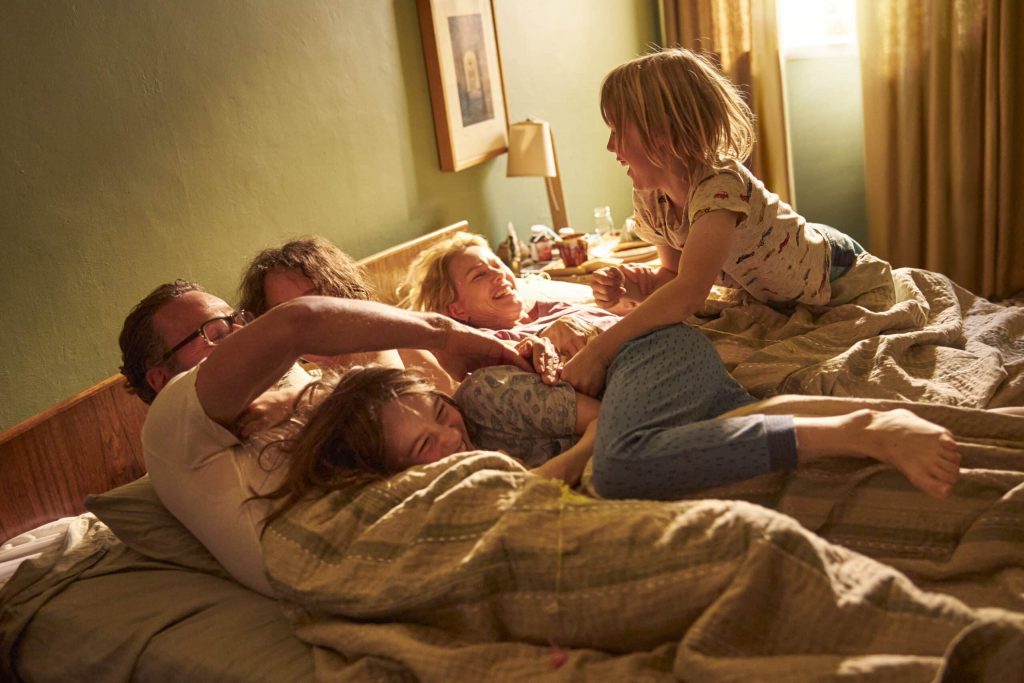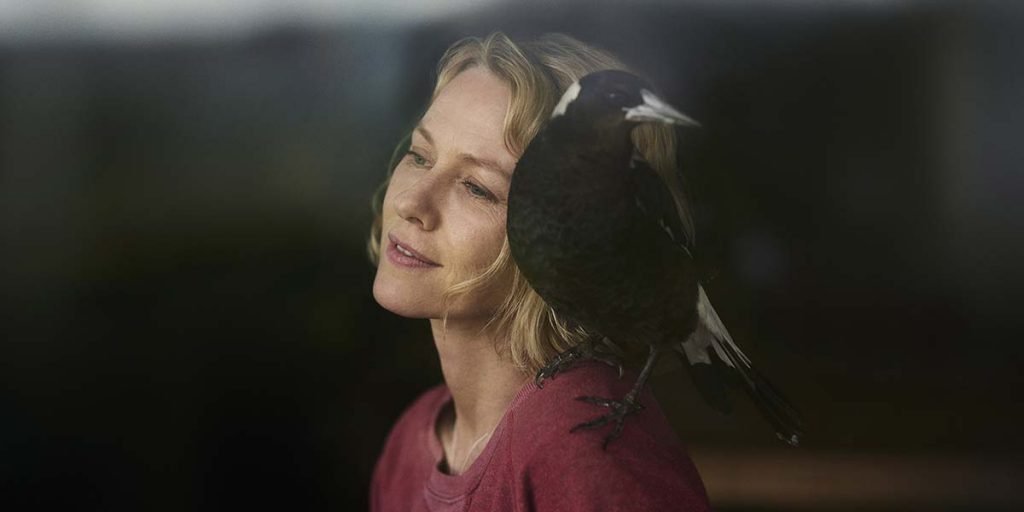In Penguin Bloom, an extremely clichéd and predictable narrative ends up reasonably moving thanks to the great Naomi Watts and its charming avian actors.
Sometimes the first few minutes of a movie seem to do their best to put you off. The opening moments of Penguin Bloom feature grandiose shots of nature accompanied by some of the hoariest narration I’ve heard in a film this year, as a child actor rambles about the value of life. It is difficult to buy into a film’s narrative when the first words we hear feels like a clichéd kid’s story. Penguin Bloom is very lucky to have a lead as talented as Naomi Watts to pull the film back to a human level of drama.
As per the norm, Naomi Watts (21 Grams) is fantastic. Blessed with an incredibly expressive face, Watts can nail this sort of role in her sleep. Here, the actor is tasked with playing a depressed woman, Sam Bloom, slowly reacclimating herself to a new life with paraplegia after a freak accident on vacation in Thailand (between this and The Impossible, Watts has cornered the market on victims of vacation horrors in the country). The role is limited by the film’s overall uplifting tone: Bloom’s despondence is kept very safe and restricted to Watts playing withdrawn around her kids, short with her husband, and vengeful towards the occasional jar of symbolic honey. Nor is the film interested in the physicality of her paralysis; the requisite note of struggling to get up after falling from a wheelchair is here, but the film is not interested in the body’s response to trauma in the way something like Stronger successfully investigated just a few years ago.
Rather, Penguin Bloom’s angle on paralysis is a magpie named Penguin that Bloom’s kids find and attempt to rehabilitate from its own injury. The plucky avian roommate – anthropomorphized in a way similar to the dog in Marley and Me – helps serve as inspiration for Bloom to begin in earnest her own efforts to rehabilitate her body and her spirit. Objectively, the bird is a treacly plot device, but I could not help myself but to find the damn bird charming. The various magpie performers are able to demonstrate an impressive number of feats of animal rearing. Watts is a game performer across from her flighted scene partners, which gives Penguin and Bloom’s arcs some real emotional impact.

The rest of the cast is made up of strong performers left little time or material with which to make an impact. Andrew Lincoln (AMC’s The Walking Dead) is blandly charming as Bloom’s extremely supportive husband. The character has too little agency or life to come off as much more than a sounding board for Watts’ performance. Other talented performers like Jacki Weaver (Animal Kingdom) and Rachel House (Hunt for the Wilderpeople) make brief appearances but have little to do. There are teases along the edges of a more mature take on the material in the performances such as allusions to Lincoln’s character exacerbating Bloom’s injury by moving her before medical personnel arrive and Weaver’s character, playing Bloom’s mother, battling a lowkey drinking problem, but director Glendyn Ivin seems to have little interest in deepening our perspective on his supporting characters.
Penguin Bloom is well shot, competently acted, and occasionally downright stirring. It represents the sort of family safe uplifting middle-of-the-road drama that was once the bread and butter of adult studio films: it is frightfully easy to envision a mid-90s version of this movie starring Julia Roberts. I must admit that, despite my many quibbles, I enjoyed this plate of cinematic comfort food.
Penguin Bloom premiered at the Toronto International Film Festival on September 12, 2020. The film will be released on Netflix in many countries on January 27, 2021.

